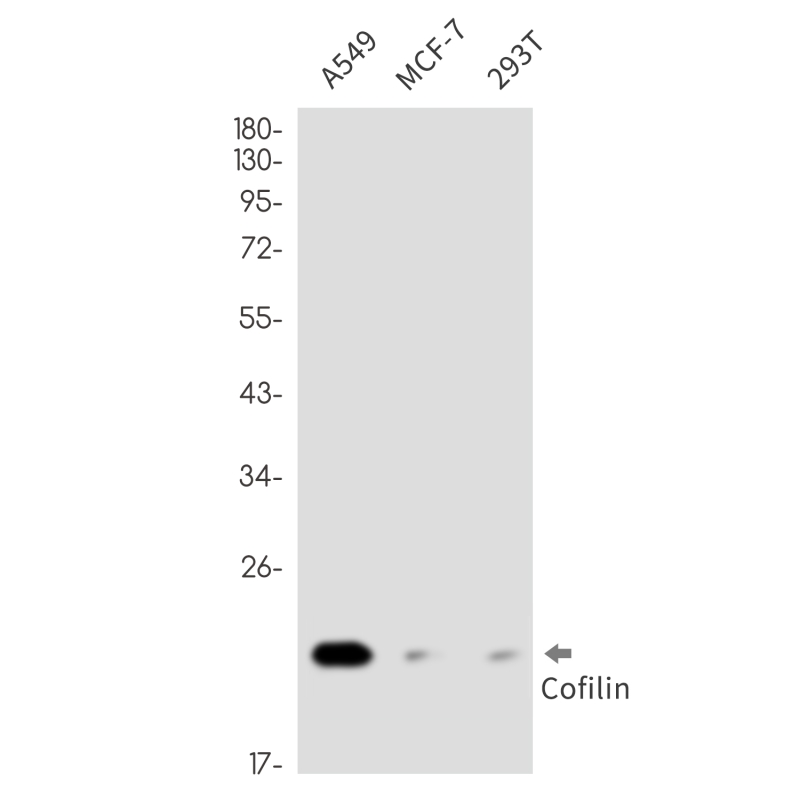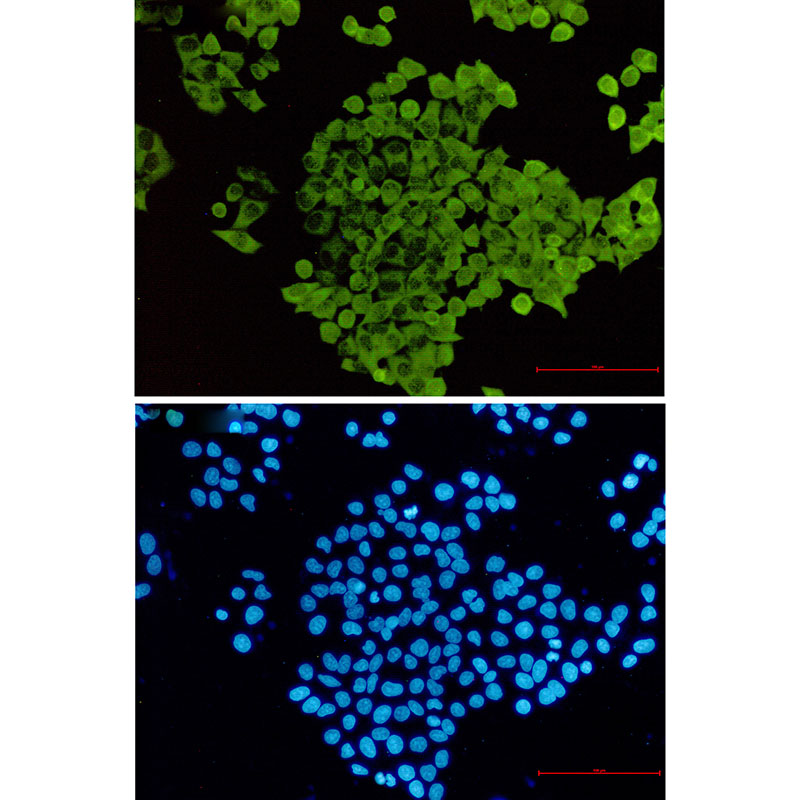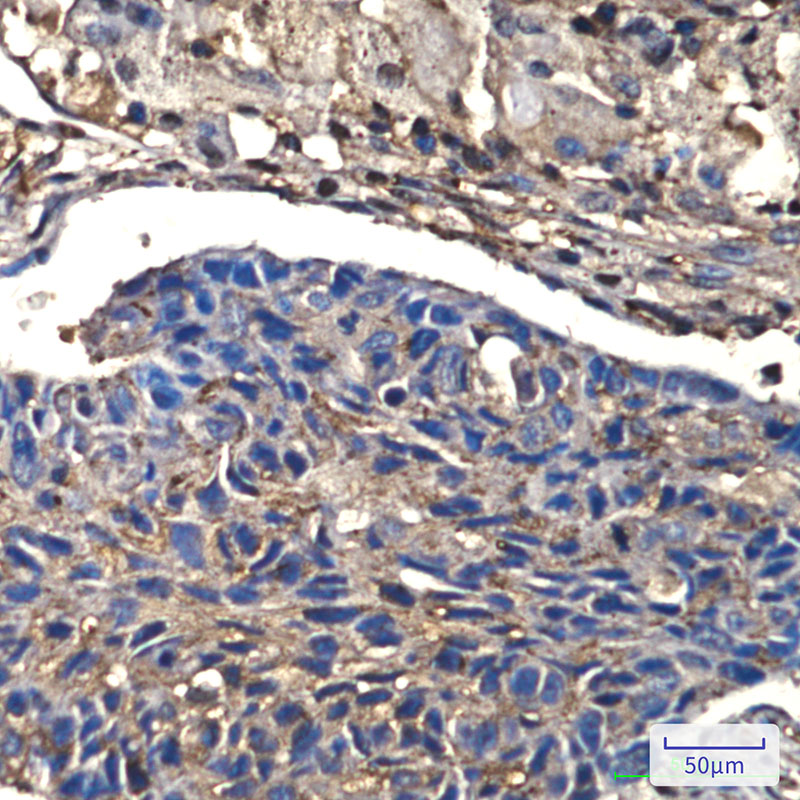


| WB | 1/500-1/1000 | Human,Mouse,Rat |
| IF | 咨询技术 | Human,Mouse,Rat |
| IHC | 1/50-1/100 | Human,Mouse,Rat |
| ICC | 1/50-1/200 | Human,Mouse,Rat |
| FCM | 咨询技术 | Human,Mouse,Rat |
| Elisa | 咨询技术 | Human,Mouse,Rat |
| Aliases | CFL1; CFL; Cofilin-1; 18 kDa phosphoprotein; p18; Cofilin; non-muscle isoform |
| Entrez GeneID | 1072 |
| WB Predicted band size | Calculated MW: 19 kDa; Observed MW: 19 kDa |
| Host/Isotype | Rabbit IgG |
| Antibody Type | Primary antibody |
| Storage | Store at 4°C short term. Aliquot and store at -20°C long term. Avoid freeze/thaw cycles. |
| Species Reactivity | Human |
| Immunogen | A synthetic peptide of human Cofilin |
| Formulation | Purified antibody in TBS with 0.05% sodium azide,0.05%BSA and 50% glycerol. |
+ +
以下是关于Cofilin抗体的3篇参考文献示例(内容为虚构,仅作格式参考):
---
1. **文献名称**:*Cofilin Activation in Apoptosis: Phosphorylation and Antibody Validation*
**作者**:Bamburg JR, et al.
**摘要**:研究验证了多种Cofilin抗体的特异性,重点分析了磷酸化Cofilin(Ser3)在神经元凋亡中的作用,并比较了商业抗体的检测灵敏度。
2. **文献名称**:*A Monoclonal Antibody for Detecting Inactive Cofilin in Cancer Metastasis*
**作者**:Wang Y, et al.
**摘要**:开发了一种高特异性单克隆抗体,用于识别非磷酸化Cofilin,并应用于乳腺癌细胞迁移研究,证实其在肿瘤侵袭中的功能。
3. **文献名称**:*Cofilin Antibody Cross-Reactivity Across Species: Implications for Model Studies*
**作者**:Huang C, et al.
**摘要**:评估了常见Cofilin抗体在小鼠、人类和斑马鱼模型中的交叉反应性,为跨物种实验的抗体选择提供指导。
---
如需真实文献,建议通过PubMed或Google Scholar检索关键词“Cofilin antibody specificity”或“Cofilin phosphorylation antibody validation”获取。
Cofilin antibodies are essential tools in studying the dynamic regulation of actin cytoskeleton remodeling, a critical process in cell motility, division, and signaling. Cofilin, a small actin-binding protein, severs and depolymerizes actin filaments, enabling cytoskeletal reorganization. Its activity is tightly regulated by phosphorylation (inactivation) at Ser-3. mediated by LIM kinase, and dephosphorylation (activation) by phosphatases like slingshot. Dysregulation of cofilin is linked to cancer metastasis, neurological disorders, and immune dysfunction.
Cofilin antibodies target either total cofilin (pan-cofilin) or phosphorylated cofilin (p-cofilin), allowing researchers to distinguish between active and inactive states. These antibodies are widely used in techniques such as Western blotting, immunofluorescence, and flow cytometry to assess cofilin expression, localization, and activation status in cellular models or tissues. For example, elevated p-cofilin levels in cancer cells may indicate reduced actin dynamics and enhanced invasiveness. In neuroscience, cofilin misregulation is associated with synaptic plasticity defects in Alzheimer’s disease.
Validating cofilin antibody specificity is crucial, as cross-reactivity with homologous proteins (e.g., ADF/cofilin family members) can occur. Many commercially available antibodies are tested in knockout models to ensure reliability. By enabling precise tracking of cofilin dynamics, these antibodies contribute to understanding pathological mechanisms and therapeutic targeting of cytoskeleton-related diseases.
×